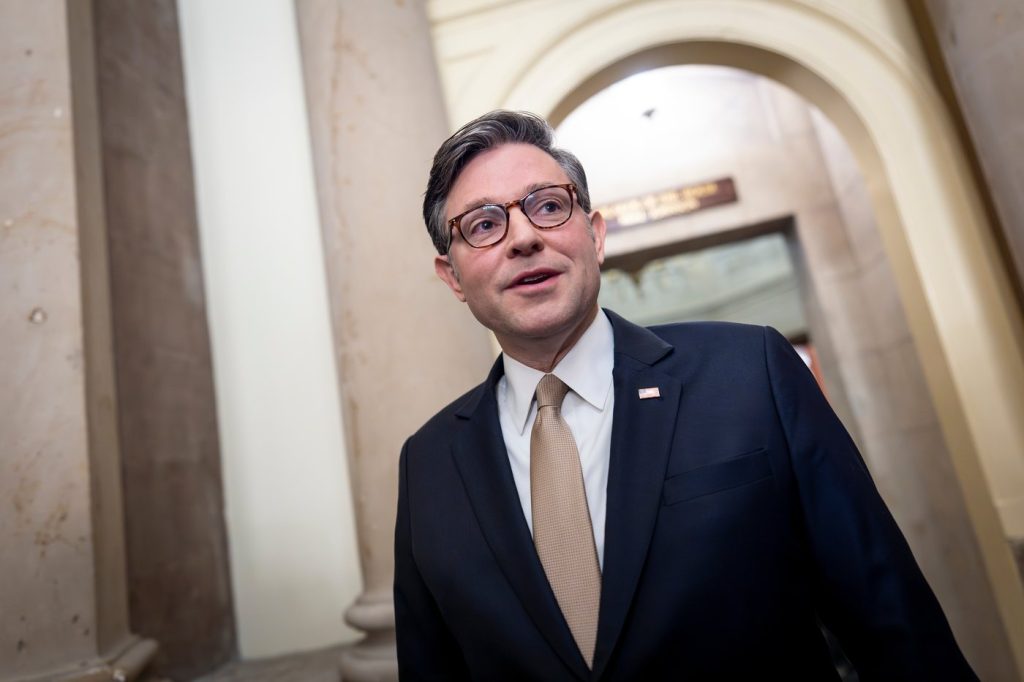WASHINGTON (AP) On Monday, Republican Speaker Mike Johnson announced that the federal government shutdown has reached its 13th day, and he warned that it might become the longest in American history. Johnson emphasized that he "won't negotiate" with Democrats until they pause their health care demands and work towards reopening the government.
Addressing reporters at the Capitol, Johnson expressed his lack of awareness regarding the mass layoffs of thousands of federal workers enacted by the Trump administration, which many view as a tactic to exploit the shutdown for reducing government scope. Vice President JD Vance has also issued warnings about "painful" cuts ahead, which are compounded by lawsuits from employee unions.
Johnson stated, "We’re barreling toward one of the longest shutdowns in American history," highlighting the ongoing uncertainty faced by federal workers and the general public. The protracted closure has halted routine government operations, forced cultural institutions like the Smithsonian museums to close, and caused flight disruptions at airports, thereby exacerbating an already delicate economy.
As the House has concluded its legislative session, Johnson has refused to call lawmakers back to Washington, while the Senate is expected to return to work on Tuesday following a federal holiday. However, negotiations remain stalled as Democrats maintain their demands regarding health care subsidies.
Johnson acknowledged President Donald Trump for ensuring that military personnel would be paid this week, which alleviated one of the major pressure points that might have driven both parties toward discussions. The deadlock is primarily rooted in health care policy, particularly concerning subsidies tied to the Affordable Care Act (ACA) that are set to expire for millions of Americans relying on government assistance for health insurance on the Obamacare exchanges.
With Congress and the White House at an impasse, many are looking toward the end of October as a potential deadline for reopening the government. This timeframe aligns with the start of open enrollment on November 1 for health coverage, raising concerns about skyrocketing insurance premiums. The Kaiser Family Foundation estimates that monthly costs could double if Congress does not renew the subsidy payments that are expiring on December 31.
In addition to the impending loss of health care subsidies, government workers on monthly pay schedules, including numerous House aides, will face without paychecks as the shutdown drags on. The ACA, which became law under President Barack Obama in 2010, has been a contentious issue since its inception, prompting past shutdowns, including a notable 16-day shutdown in 2013 when Republicans attempted to repeal the law.
During his tenure, Trump also sought to "repeal and replace" the ACA in 2017; however, that initiative failed when Senator John McCain voted against the proposed legislation. Currently, with a record 24 million enrolled in Obamacare, Johnson noted the Republican Party's hesitance to pursue a complete repeal, citing the deep roots of the health care law. "Many of us are skeptical about that now because the roots are so deep," he stated.
Despite maintaining that the Republican Party is open to discussing health care solutions with Democrats before the subsidies expire, Johnson reiterated that Democrats need to agree to reopen the government first. The longest previous shutdown, which lasted 35 days, occurred during Trump's first term over funding for a border wall.
Amid the shutdown, the Trump administration is taking significant measures to manage resources and potentially bypass pay issues for certain sectors, including military personnel, through the use of various funding sources under previous legislation. The Pentagon recently tapped into $8 billion in unused R&D funds to ensure military personnel received payment, a move that could mitigate the impact of the shutdown on certain troops. However, other sectors, like the Education Department, are enduring severe disruptions affecting critical services.
The Congressional Budget Office has indicated that various departments could utilize mandatory funding provisions to sustain operations during the shutdown, indicating that specific funds have been allocated to certain departments, including Defense and Treasury, to maintain essential functions despite ongoing budget disputes.











